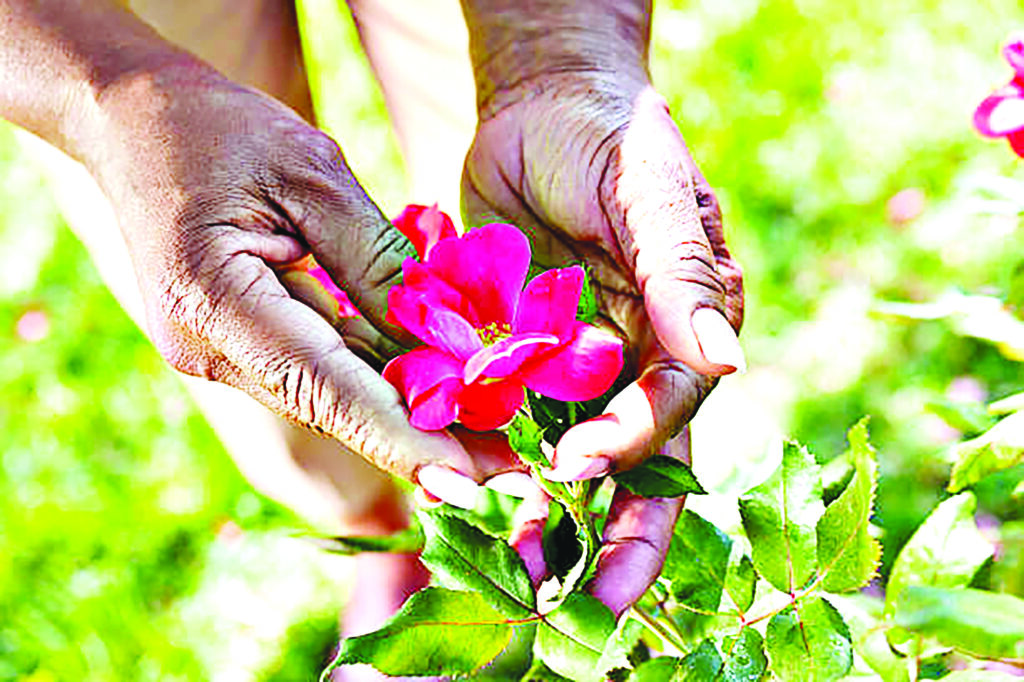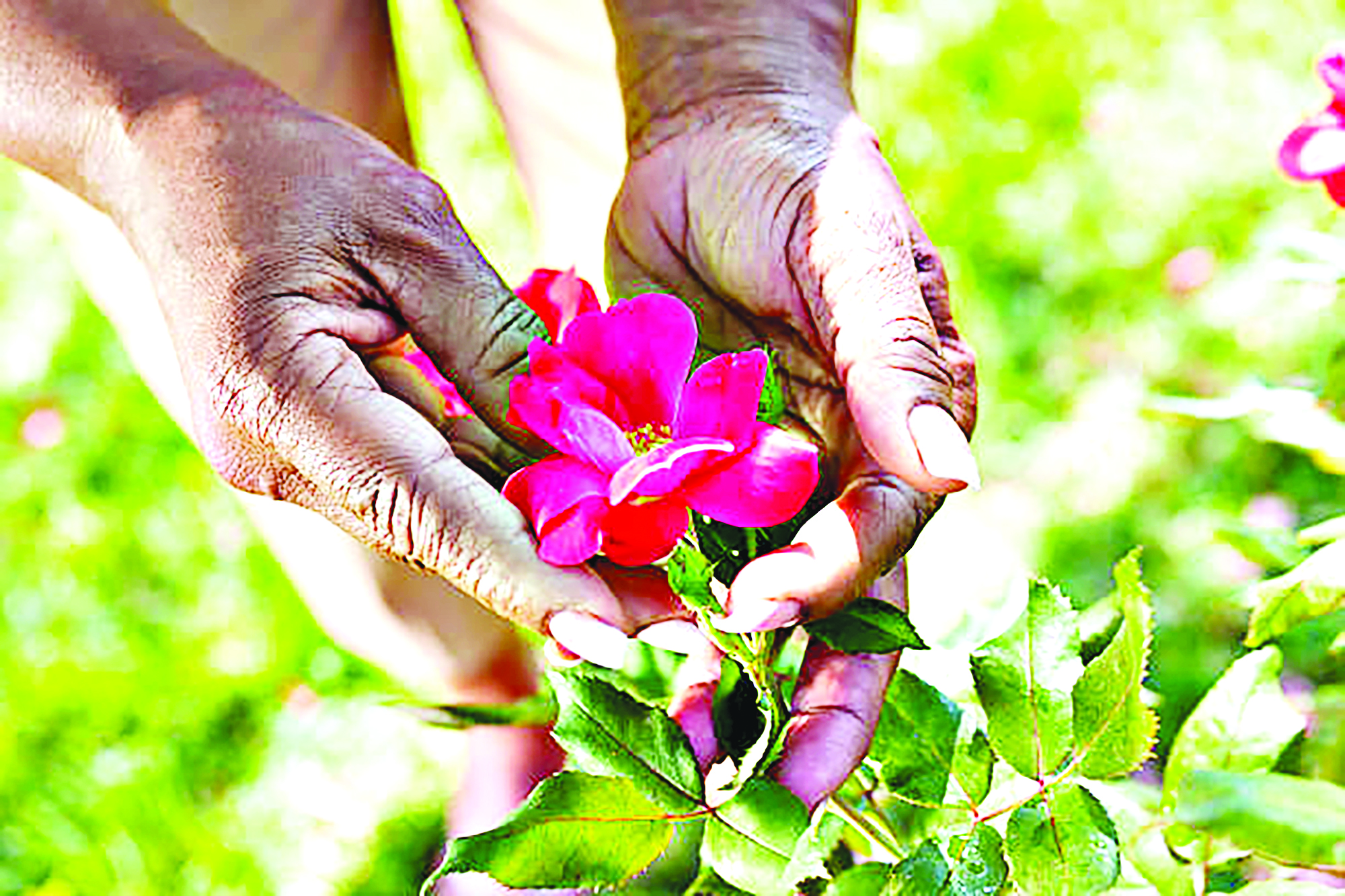
By Bongiwe Zwane – Maseko
51-year-old florist Doreen Dlamini knows the names of all plants and flowers at the top – bluebells, alstroemerias, lilies, daisies, gardenias, roses, carnations, orchids, tulips, birds of paradise and sunflowers.
She knows what weather conditions are favourable for their growth, what they symbolise, and which flowers to pair with which for her amazing bouquets.
Other than six months as a cleaner when she was 19, she has never worked in any other environment. She says her employer, who ran a florist shop, had hired her as a cleaner in her home and when she saw her love for flowers she employed her to work at the shop.
Read More: International Women’s Day: Jabu controls multibillion-dollar purse
“I fell in love with flowers the first time my employer asked me to assist pick a few flowers from her garden. I randomly chose a few flowers, added some ferns, and put them in a vase. She was hosting a dinner for her friends and they were all impressed with my pairing, saying the combination was amazing. I then started working at the shop and it has been 32 years of bliss,” Dlamini says.
She works six days a week and three of those days consist of early mornings to ensure she prepares her arrangements before it gets too hot. She says one of her tasks is to condition the flowers. She explains that Conditioning is preparing the cut flowers to prolong their longevity in displays and ensure they look their best.
“Once the flowers have been conditioned, it is time to crack on with the day’s orders. I also call the driver each morning to let him know how many orders we have. Once the orders have been completed, my colleague and I will create lots of bouquets for the shop so any customers calling for something have plenty of options to choose from. Then comes making the bouquets. I like to start with colour. I select a flower and team other colours with it, along with adding different textures, which is important to get a good mixture. I also take into account the customers’ order or preference but add my personal touch to it,” she says.
She says currently, her favourite arrangement is a vintage bouquet as she loves the rustic and romantic feel.
Read More: A day in the life of a farmer
“We know that our regular customers like styles such as vintage, traditional, and modern bouquets but we are constantly learning too and widening our product offering. Weekends are very busy, particularly Fridays and Saturdays. There are memorial services and funerals every weekend and people love to give their loved ones a beautiful send-off using different arrangements. Working on these is always heart-warming because I have lost a lot of people close to my heart and I know that their funerals are the best way we can pay our final respects. We get lots of orders for memorial bouquets every weekend and for tombstone unveilings,” says Dlamini.
She adds that weddings are also synonymous with flowers and they receive large orders almost every weekend – especially at the end of each month – for different wedding bouquets.
“These orders allow us to explore our creativity since most brides-to-be will just google photos of arrangements and bouquets, ours is to make that dream a reality. Some of the flowers they want are not available locally so we can get them couriered from South Africa or find alternatives. It can be stressful but very rewarding,” Dlamini says.
She says they also do arrangements for baby showers, birthday lunches, and offices as some offices want fresh flowers every week for their reception areas.
She says before the Covid 19 pandemic, her employer ran small classes in the shop for aspiring florists.
“Learners were given all the products they will need to create their final piece and I would guide them as they go. Throughout the past year, we’ve had a lot of customers asking when our classes will return, which depends on the ever-changing situation. We do not have time though, we are constantly busy,” the bubbly florist says.
Read More: A day in the life of a nail technician
She says despite the challenges brought on by the pandemic, the florist industry has been lucky as they were able to work through the majority of the lockdowns, with funerals and weddings. Dlamini says one of the most challenging facets of the business is time management.
“Things have to be done speedily. Time management can often be the most challenging thing for me. Ensuring that orders are made and ready for when customers are collecting or for the driver to deliver can often be tricky. We also have a lot of orders come in on the day, which can set you back, but prioritising one’s time is key. What makes those challenging times better is hearing compliments from customers, it makes my job so worthwhile,” she says.
Then, toward the end of each day, we look at the next day of orders to see what stock we have and what products we need to get from the market. We check the stock in the shop and replenish anything that has been sold, candles, cards, etc. We sweep and clean down all surfaces, ensuring that the shop is clean and ready for the morning after.






